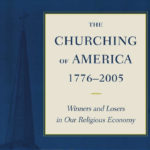By Tina Von Wald
Ministry leadership development has neglected the rural ministry model for the younger generation. The promotion of urban ministry supersedes rural ministry time after time. As a result, rural ministry development has floundered and struggled to find leaders who understand the rural church and become successful in a rural setting. The lack of leadership development materials and training provided the problem for this study.
The research will include leadership literature reviews and interviews with lead pastors in a rural setting, thus determining the leadership materials’ applicability to their experiences. The methodology will include qualitative research of personal interviews conducted in person, by phone, or electronically. Evaluation of literature review and interviews happened through the lens of rural leadership development materials availability and quality.
The major findings determined that education varied, leadership principles denoted different definitions, the pastors desired additional rural training, the development of leaders within the church does not happen consistently or at all in some locations, limited rural literature availability, and mentoring could provide support and encouragement. The findings, processed through the Missional Helix, a four-step process used for healthy church planting, provides a structure to evaluate the findings using theological, cultural, and historical perspectives. [1]
A rural pastor’s role has existed for hundreds of years with isolation and its unique challenges. These challenges remain today, with different terminology but similar foundational issues. This research identified some areas that the rural pastor needs undergirding. Those areas represent personal development through education, training in leaders’ development, mentoring, or coaching opportunities. Roger Heuser and Norman Shawchuck wrote concerning the pastor, “Simply put, leaders cannot give to others what they themselves do not possess from within.”[2] Providing help and encouragement for the rural pastor describes the end goal of this research.
Demonstrating functional competencies becomes enhanced through leadership development tools and training. The pastors interviewed had a varied education, with only a few having formal Biblical training. In Exodus, God said to Moses about Bezalel, “and I have filled him with the Spirit of God, with ability and intelligence, with knowledge and all craftsmanship…” (Exod. 31:3). God gave provisions to each interviewed pastor to perform their jobs. These pastors grew up in a rural setting which provided a more remarkable ability to relate and understand the culture. David A. Livermore described Jesus and culture as, “Jesus always conveys the kingdom through the medium of culture…The values of culture live in tension with the values of the kingdom…There’s no such thing as a cultureless gospel. Jesus healed, taught, and preached within a very particular culture.”[3] Understanding the culture contributes to a rural pastor more than a formal Bible education without an emphasis on rural ministry. The apostle Peter identified, “His divine power has granted to us all things that pertain to life and godliness, through the knowledge of Him who called us to His own glory and excellence” (2 Pet. 1:3). Moreover, John added, “But you have been anointed by the Holy One, and you have knowledge.” (1 John 2:20). God gives the rural pastor knowledge and anointing to fulfill the call. Education and continuing rural-specific training along with life experience provides tools to accomplish the job.
Leadership principles varied, with relationships as the most mentioned contributing factor. Samuel R. Chand agreed, “Our ability to connect with people, earn their trust, invite their opinions, and inspire them is the most important trait we bring—even more important our experience or skills.”[4] Jesus provided the greatest example of friendship, “No longer do I call you servants, for the servant, does not know what his master is doing; but I have called you friends, for all that I have heard from by Father I have made known to you.” (John 15:15). Jesus called His disciples friend as time passed and as He shared more of Himself and the Father with them. Jesus taught His disciples koinonia which means communion or fellowship, to define relationships. This concept happened when people gathered to eat together around a table or in homes. Koinonia puts the other person’s needs before oneself. Rural ministry can seek relationships to build the church and pursue leaders; in other words, becoming motivated to meet the minister’s personal needs—opposite of what Christ calls us to do. So, while relationships remain essential in the rural setting, the motivation behind them requires constant evaluation within Christ’s modeled framework.[5]
The majority of the rural pastors interviewed for this project struggled to develop leaders within their congregations. Finding the tools and materials to aid them in the development calls for innovation and rural pastors’ writing new material. The literature review found little material on leadership development in the rural setting. Leadership materials, in general, exist in abundance, and much of that material allows for minimal rural ministry application. Specific and contextualized leadership development materials for the rural setting remain limited and often dated between 2005-2015. Healthy rural ministry development necessitates additional material and training options because the health of a church depends on the health of the pastor and congregation.
Mentoring and coaching represented the need for someone to come alongside the rural pastor and provide encouragement, instruction, counseling, guidance, and companionship. Coaching and mentoring differ in their approach, but both have essential outcome. Wright explained the importance of mentoring,
Mentoring is a relationship with purpose. There is no formula, no ideal model, and no program of steps to success. It is a relationship connected by a shared interest in learning and growth, and it must be constantly nurtured and recreated. It has purpose and structure defined by the learning needs of the mentoree and shaped by the wisdom and experience of the mentor. It is more than leadership…Mentoring, on the other hand, may nurture organizational competence, but always in the broader context of personal development and growth.[6]
Only three pastors interviewed currently have a coach or mentor. Healthy personal growth and development, along with encouragement, helps pastors meet the needs of others. The apostle Paul warned, “Let the word of Christ dwell in you richly, teaching and admonishing one another in all wisdom, singing psalms and hymns and spiritual songs with thankfulness in your hearts to God” (Col. 3:16). Mentoring and coaching go beyond just the teaching and admonishing and include the worship of Christ together.
The rural ministry has experienced neglect and obscurity for many years. Roth declared, “The identity of the rural church is found in being gathered up to Christ, not in any perceived rural distinctiveness or mission, however seemingly pressing. The rural church is nothing more—and certainly nothing less—than Christ’s church, whole as it is gathered together with all the fragments.”[7] This research recognizes a vital mission field where thousands of pastors remain committed to the missio Dei in their communities. Jesus told the disciples, “Go therefore and make disciples of all nations, baptizing them in the name of the Father and of the Son and of the Holy Spirit” (Matt. 28:19). Jesus gave them the power of the Holy Spirit to guide and lead them to compassion and mission for their communities. Gary Tyra stated, “Therefore, the church, if it faithfully represents the reign of God to its contemporaries, will be led by the Spirit to offer compassionate responses to the human need it witnesses in the world.”[8] By providing support through education, mentorship, coaching, prayer, and encouragement, the rural pastor can remain healthy and lead a healthy church. [9] Lawrence W. Farris declared,
Nevertheless, ministers who work to understand what shapes small-town life and how small towns work will, I believe, be able to make significant and creative contributions in helping to preserve what makes these places special, even in the face of such challenges. Not only can ministers who understand the dynamics of small towns lead their churches in strengthening the town; they are often uniquely placed to lend perspective and leadership to the town itself, helping it live out of its cherished history, culture, values, and traditions while finding new ways to respond and survive amid the challenges of the world beyond its boundaries.
Helping current and younger generations understand the unique culture, the community, the church and the spiritual responsibility that comes with the rural pastor’s role.
[1] Gailyn Van Rheenen, “The Missional Helix,” Mission Alive (2013), http://www.missionalive.org/ma/index.php/resources/articlesmenu/83-the-missional-helix-example-of-church-planting.
[2] Roger Heuser and Norman Shawchuck, Leading the Congregation: Caring for Yourself while Serving the People (Nashville, TN: Abingdon Press, 2010), 17.
[3] David A. Livermore, Cultural Intelligence: Improving Your CQ to Engage our Multicultural World (Grand Rapids, MI: Baker Academic, 2009), 38.
[4] Samuel R. Chand, Cracking Your Church’s Culture Code: Seven Keys to Unleashing Vision & Inspiration (San Francisco, CA: Jossey-Bass, 2011), 107.
[5] Roth, God’s Country, 189-191.
[6] Wright, Relational Leadership, 68.
[7] Roth, God’s Country, 17.
[8] Gary Tyra, The Holy Spirit in Mission: Prophetic Speech and Action in Christian Witness (Downers Grove, IL: InterVarsity Press, 2011), 151.
[9] Lawrence W. Farris, Dynamics of Small Town Ministry (Herndon, VA: Alban Institute, 2000), 78.
Bibliography
Barna, George. Leaders on Leadership, Ventura, CA: Regal Books, 1997.
Chand, Samuel R. Cracking Your Church’s Culture Code: Seven Keys to Unleashing Vision & Inspiration, San Francisco, CA: Jossey-Bass, 2011.
Farris, Lawrence W. Dynamics of Small Town Ministry, Herndon, VA: Alban Institute, 2000.
Heuser Roger and Norman Shawchuck. Leading the Congregation: Caring for Yourself while Serving the People, Nashville, TN: Abingdon Press, 2010.
Livermore, David A. Cultural Intelligence: Improving Your CQ to Engage our Multicultural World, Grand Rapids, MI: Baker Academic, 2009.
Roth, Brad. God’s Country: Faith, Hope, and the Future of the Rural Church, Harrisonburg, VA: Herald Press, 2017.
Tyra, Gary The Holy Spirit in Mission: Prophetic Speech and Action in Christian Witness, Downers Grove, IL: InterVarsity Press, 2011.
Van Rheenen, Gailyn. “The Missional Helix,” Mission Alive (2013), http://www.missionalive.org/ma/index.php/resources/articlesmenu/83-the-missional-helix-example-of-church-planting
Webber, Robert E. Who Gets to Narrate the World? Contending for the Christian Story in an Age of Rivals, Downers Grove, IL: InterVarsity Press, 2008
Wright, Walter C. Relational Leadership: A Biblical Model for Influence and Service, Downers Grove, IL: InterVarsity Press, 2009.




















